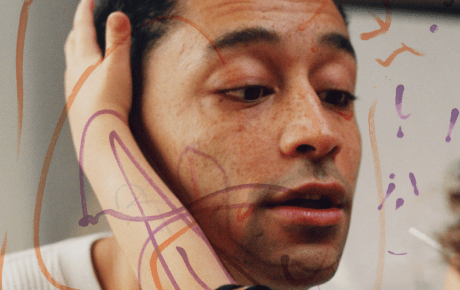Even with the eternal gag surrounding the age and agelessness of The Rolling Stones, it’s still kind of astonishing that this brand new studio album is arriving sixty years since they released their Chuck Berry-penned single ‘Come On’. But, the most incredible thing about the band’s 24th album is not even them enlisting Elton John, Paul McCartney, Stevie Wonder, and Lady Gaga to help out, but how good it actually is.
The rocking songs rock, the country weepers will get you where they need to, and it’s got soul to spare. There is poignancy and reflection, flashes of punk spirit, one outstanding moment of deep gospel soulfulness and that trademark rambunctious, irreverent energy that has the power to make life seem so much richer. The Rolling Stones have never taken themselves too seriously, but they also know that nothing is more serious than a great piece of music and that’s evident on this record.
View this post on Instagram
Hackney Diamonds is their first album of original material in eighteen years. The incredible rhythm of the late Charlie Watts is on there, alongside an appearance by original bassist Bill Wyman. The album is a summation of the band’s remarkable 60-year journey, and proof that the journey is far from over. Critics are already saying it’s their best album in decades, and they are right. Circumstances made the album a long time coming, not least with two years lost to Covid, but with the passing of the band’s beloved drummer Charlie Watts in 2021 bringing life’s passing into focus. The bands’ goal was to capture an immediacy similar to ‘Some Girls’, which was recorded within a few weeks at EMI’s Pathé Marconi studio in Paris 1978. The first steps towards achieving this goal was for Jagger, Keith Richards, pianist Matt Clifford and drummer Steve Jordan to head to GeeJam Studios in Port Antonio, Jamaica to see if they could cook up a vibe … and did they ever.
Jagger started looking for producers for the project and came across Andrew Watt, an energetic 32-year-old New Yorker whose worked on hits for Camila Cabello, Justin Bieber, and Dua Lipa. But his work with Ozzy Osbourne, Elton John and Iggy Pop revealed a classic rock sensibility that spoke to a time beyond Watt’s years. Watt came down to early sessions at Electric Lady studios in New York and, armed with an intimate knowledge of the Stones’ back catalogue, he passed the test. Then most of the album was cut at Henson Studios in Los Angeles and Sanctuary Studios in Nassau, Bahamas, with nearly all the recording completed within the space of a month, as various high-profile guests dropped by at the invitation of the band to surrender themselves to the groove the Stones were locked into.
Richards commented on Watts’s role as producer, “We call him the Kid. He’s a young guy to be working with an institution like the Stones, but if there was any residue intimidation from us, he certainly didn’t show it.” But it is that unmistakable Stones spirit, however, that shines throughout. Helped with some of the best Jagger-Richards songs in years. Richards goes on to say, “Charlie left us, for better places I hope, and then last year Mick called and said: ‘let’s do it.’ We started to work these things out as they went along and decided to keep it within the band, which made us fall back on our own talents. It was controlled madness. Mick was the controller, and I was the madness.”
Hackney Diamonds kicks off with ‘Angry’, a classic rocker that sees Jagger asking: why is everybody so angry? As to the deeper message of the song, Richards went on to say, “’Angry’ is classic Stones. As soon as we were running through it, I heard the bass part in my head and thought, that’s my bit baby. It helps that Steve Jordan is an amazing person to play bass with.” The song simply sets the musical tone of the album to come.
The next song is ‘Get Close’, Jagger comments on the inception of the song, “Keith and Andy Watt sent it to me when I was in Italy and I went: Like the groove, what on earth am I meant to do with it? Then we were in LA and the top line melody came really quickly.” From there it is straight into the funky drums, bluesy riff, seesawing Wurlitzer and jumping piano from Elton John on the good time groover that makes the song so glorious, a reminder that the Stones are ultimately a rocking bar band, however big that bar might have become. When Richards is asked about the song, he also reminisces on how many people were involved with the recording over time, “Isn’t Reg [Elton John] on that one? They did the session with him in London, which I wasn’t on, so I tried to match my guitar to the feel of what was already there. Funny how people crept in on this album. It was never meant to be star-studded, but they kept turning up.”
Richards continues reflecting, “Steve Jordan and I were fooling about on the rhythm when Mick picked up on it and turned it into a song. That’s how it happens sometimes. You can be sitting around in a room, picking away without thinking, when someone walks in and says: ‘That is beautiful.’ And you thought you were just tuning up”. This moment of musical germination is the basis of the third track ‘Depending on You’, a grown-up pop song about the realities of relationships, complete with elegant strings, a slow build on a simple arrangement and gorgeous slide guitar from Ronnie Wood. The sparkle to the chorus on ‘Depending on You’, (co-written by Watt) suggests the presence of someone who knows how to make contemporary hits, and there’s a light modern sheen to the production that prevents it sounding like a determined recreation of the Stones’ past.
‘Bite My Head Off’ is a throwback to a punk infused 70’s rocker of a track. Listening to this song leaves you no doubt that these 80-year-olds have more attitude than most 20 somethings! Jagger illuminates where the punk intent come from, “I wrote so many punk songs for the Stones, but I could never get away with them. Then came the lockdown period, I was playing guitar a lot, and they kept coming out. As you might know I’m not a great guitarist, but I got all my angst and energy out in these simple songs. Paul McCartney came along, so we distorted the f*ck out of his bass, and it sounded good.” ‘Bite My Head Off’ makes you wonder: are the Stones a punk band? They were the original punk band, all the way back in 1964, when a concert at the Empress Ballroom in Blackpool ended in a riot. The spirit of rebellion continues with Hackney Diamonds.
‘Whole Wide World’ has something of a punk spirit too, as it recalls the legendary squalor of a flat shared in the early 60s by Jagger, Richards and Brian Jones at Edith Grove in Fulham, with its smell of sex and gas and general mood of hopelessness., according to Jagger, “I don’t do backwards looks that much, but for this one I was picturing a bleak vision of London in my early 20s and it was a fun thing to write. Once again, the song has a punk vibe. I was imagining depression in the verses followed by a slightly more hopeful chorus.” The song has a strong driving rhythm. The tempo was a bone of contention at the start, Richards explains: “Mick always wants to speed it up and push it. I want to take it easy. We reached a happy medium on this one and I think we got it right. There is a difference between having impetus and running over your own feet.”
The blues infused ‘Dreamy Skies’, takes us from punk to country. The track has a wonderful country lilt that will have you rocking on the porch whilst sipping your favourite beverage. Richards describes the song, “I really like this one. It’s a beautiful ‘gimme a break’ song that Mick wrote; nicely done, nicely played, Mick singing it cool, taking his own advice and getting away from it all sometimes. It is world-weary without throwing in the towel.” Moreover, Jagger added, “You are never ‘away’ now, wherever you go. Someone’s always texting you, aren’t they? When you have no connection, no phone, only the country music on the radio for company, then you have escaped. It is an anti-modernity thing. That’s the new luxury: to be unavailable to everyone.” ‘Dreamy Skies’ is one of the prettiest songs on the album, an ode to dropping out of city life and escaping to the country.
Originally ‘Mess It Up’ was more synth-oriented, but Richards wanted more guitars. Featuring the late great drummer Charlie Watts, the song is a four-to-the-floor dance groover. Richards reflects on Charlie’s drum track: “I grew to like this one, but I always wonder what Charlie Watts would have made of it. I know Charlie. He’s not sure about that disco beat, but once he gets into it… Every time I listen to it I see the wry smile on Charlie’s face.”
View this post on Instagram
One of the album’s highlights is ‘Live by the Sword’, the one song where the band’s long-time line up is reunited — not because the song itself is exceptional, but because it reunites the band’s peerless rhythm section of some 37 years; Watts and bassist Bill Wyman, and recaptures the inimitable laid-back up tightness that is a trademark of the Rolling Stones sound. Wyman once explained it by saying “Most bands follow the drummer. We don’t: Charlie follows Keith,” so the drums are a fraction of a second behind the beat. The bounce in the rhythm is unmistakable; long-time fans won’t even need to check the credits — they’ll know within seconds. As to the title of the song Richards explains, “The message is all there in the words. If you live by the sword … It’s the other side of that equation I’m not so sure about.” Alongside Bill Wyman, reviving his former role as the Stones’ bassist is Elton John adding a touch of T. Rex boogie on piano. The song dates back to 2019, prior to the band recording the single ‘Living In A Ghost Town’.
Richards came up with the original idea for ‘Driving Me Too Hard’, a beautifully lamenting country rocker. “Mick and I finished off the song together in the Bahamas, sitting down on the floor with a piece of paper, and that old fashioned process brings a different flavour as well. Mick does a great vocal and I love the thick, droning sound on the guitars. It’s almost Irish”, says Richards. Meanwhile Woods has his own aspirations for the song, “This is the one I want to play at the Grand Ole Opry at Nashville. I’m using the B-Bender pedal steel guitar, which gets the sad yearning sound that is at the heart of all good country music.” Jagger added “Keith forgot he came up with this until we went, Keith, this is really nice. We didn’t have a good take with Charlie on it so I suggested we redo the song at Henson in LA. It has a traditional Stones feel. People like that.”
Richards tells us straight about how he came up with ‘Tell Me Straight’, “If this is a poignant song, well, I’m a poignant man, and after writing Happy you can only go the other way. I had the skeleton and the idea a few years back and forgot all about it. It is my offering for this outing, shall we say.” ‘Tell Me Straight’ is Keith at his best: a sparse, moody ballad filled with an affecting blend of resignation, lamentation, and acceptance. Jagger added, “It’s a good Keith song. He sings it well, I warble away on the B section and play some acoustic guitar to hold it together, and it is one of those numbers where Keith gets the emotion right. ‘Is the future all in the past?’ That’s a good line.” Woods concluded, “Keith needed to get it off his chest. Typical Keith: when he has something like that, he has to get it out.”
‘Sweet Sounds of Heaven’ is an apt name for this tune, even if guest star Lady Gaga nearly hospitalises herself trying to evoke the spirit of Merry Clayton, fabled ‘Gimme Shelter’ guest vocalist, on this track. Jagger expounds on the guest artist line up: “I had this simple gospel style sequence and thought: am I getting too sweet here? I put in the lyrics about a dusty motel to set against the sweetness of the music, and by the time we got to the studio it was great to have Stevie Wonder on it because he can do all these gospel motifs I can’t do, diminished chords and so on. Then I was singing away in the studio when I looked down to see a woman at my feet and went, Oh, it’s Lady Gaga. So I gave her my iPad with the lyrics on, she wrote the words down and the whole thing came together very quickly, partly because she sings so wonderfully.” Richards added, “It’s classic soul, man. And just to prove it, Stevie Wonder is there. It was amazing to watch the man pick up ideas on where to go with the song before you do — and we wrote the thing. We first went on tour with Stevie in ’72 and I’m still in awe of him, all these years later.”
The final track on Hackney Diamonds is the perfect conclusion. The album finishes where the Stones began: with ‘Rolling Stone Blues’, a fantastically febrile cover version of the Muddy Waters song that gave the band their name. It features Keith Richards knocking the hell out of an acoustic guitar as Jagger blows away on harmonica and growls through the words in a way that pierces the throbbing heart of the blues. So ends an album that celebrates and captures the best rock’n’roll band in the world: raw, alive and still knocking ’em dead, after 61 years in the business.
In conclusion, there is no doubt that Hackney Diamonds is either the band’s perfect swan song or the beginning of their final chapter. I give the final word to the member of the band who sums up the ethos of the Stones and their career, Keith Richards, “This is Mick and me going: here is where it all started. Mick plays incredible harp, I love the man, and it is a nod back to the very beginning. Hey, if you want to know about the band… this is it, baby”. Thank you Keith Richards and may you never die …












